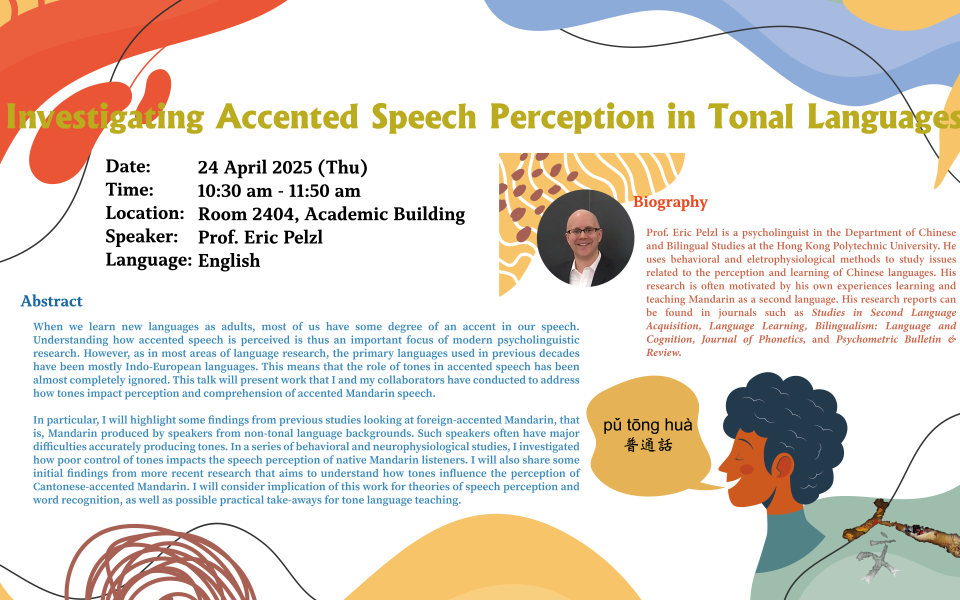Abstract:
When we learn new languages as adults, most of us have some degree of an accent in our speech. Understanding how accented speech is perceived is thus an important focus of modern psycholinguistic research. However, as in most areas of language research, the primary languages used in previous decades have been mostly Indo-European languages. This means that the role of tones in accented speech has been almost completely ignored. This talk will present work that I and my collaborators have conducted to address how tones impact perception and comprehension of accented Mandarin speech.
In particular, I will highlight some findings from previous studies looking at foreign-accented Mandarin, that is, Mandarin produced by speakers from non-tonal language backgrounds. Such speakers often have major difficulties accurately producing tones. In a series of behavioral and neurophysiological studies, I investigated how poor control of tones impacts the speech perception of native Mandarin listeners. I will also share some initial findings from more recent research that aims to understand how tones influence the perception of Cantonese-accented Mandarin. I will consider implications of this work for theories of speech perception and word recognition, as well as possible practical take-aways for tone language teaching.
Biography:
Dr. Eric Pelzl is a psycholinguist in the Department of Chinese and Bilingual Studies at the Hong Kong Polytechnic University. He uses behavioral and electrophysiological methods to study issues related to the perception and learning of Chinese languages. His research is often motivated by his own experiences learning and teaching Mandarin as a second language. His research reports can be found in journals such as Studies in Second Language Acquisition, Language Learning, Bilingualism: Language and Cognition, Journal of Phonetics, and Psychonomic Bulletin & Review.
